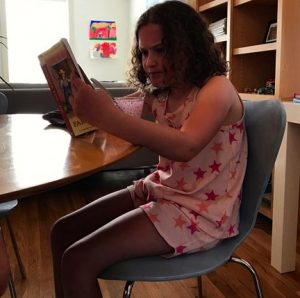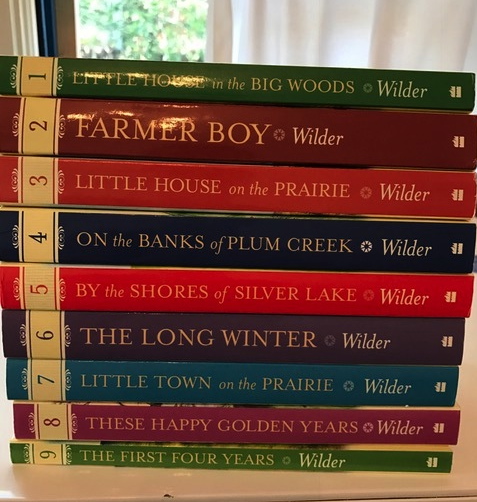After reading Laura Ingalls Wilder’s books as a kid, I was convinced I was born in the all-wrong era. I really believed I belonged with those hardy pioneer folks on the prairie, sleeping under my homemade quilt on my homemade mattress eating homemade jam with my ever-expanding family in my hand-built-by-Pa-cabin. Regardless of the t.v shows, which I watched religiously, that brought the hardships and suffering to life quite vividly – I still have some horrible barn-burning at night scene seared into my memory – pioneer life was definitely the life for me.
And so…I’m not sure how I choose the timing, but when Olive, my daughter, was 7 and my son Cash was 5, we had a Little House on the Prairie year at my house. We read all nine books – one after the other. And this time we were all riveted.
Pioneer life was not for the faint of heart. The artisans of today who are pickling all things pickle-able and making small-batch cheeses and sausages and creating lovely soaps from herbs they’ve locally sourced, are awesome. But the Ingalls and the Wilders and their contemporaries were doing all that stuff plus surviving long winters; and fighting off unfriendly Native Americans; and suffering – they and their animals – from all manner of sickness and disease; and just struggling to survive at the most base level. Our running commentary as we read the books was made up of “Whoa” and “No way!” and “What?” and lots of sad whimpers for lost animals, ruined crops, plenty of near-death experiences, and all the hardships that were the nature of life during this time.
The Long Winter – book six in the series – is truly an unbelievable account of seven months of blizzards. Mother Nature at her mid-western harshest in a way we haven’t seen in our life time. The whole town the Ingalls were staying in at the time, would have perished from hunger if Almanzo Wilder, Laura’s future husband, and Cap Garland another unreasonably brave 19-year-old young man hadn’t gone on horseback in search of some wheat that they heard might be being kept by a man who might live somewhere out there in the middle of nowhere. Somehow, in a blinding blizzard with no visible markers to lead their way, Cap and Almanzo found the man, got the wheat, brought it back – once again in a blinding blizzard – and the town lived on basically wheat and melted snow bread for the next three months. We were on the edge of our seats! The three of us were swooning over just how self-reliant these guys were (Almanzo’s nickname was Manly). (And Pa! The man could skin a bear, single-handily build a house, protect his family from any sort of intruder – man or beast – walk across the prairie for days, and play a mean fiddle!)
Of all the stark contrasts between then and now that these books illuminate, the most striking is the isolation. Not the isolation of pioneer life…The isolation that becomes so apparent, is our isolation today.
Of all the stark contrasts between then and now that these books illuminate, the most striking is the isolation.
Not the isolation of pioneer life, everything was totally interconnected then: though homesteads may have been a few miles apart – neighbors knew exactly what was going on with one another and always had each other’s backs. Ravaged crops, fatal illnesses, starvation in winter-time – whatever challenge, these people were never alone. Good times – barn risings, literary salons, spelling bees, winter sled rides – always enjoyed and celebrated as a community. Families read out loud to one another, played music, crafted, chatted, etc.
The isolation that becomes so apparent, is our isolation today.
Can you long for a time you never actually experienced? Though I am so grateful for the medical advances in the last one hundred and fifty years. And of course, all the social progress that’s been made. I can’t help but wish for more for Olive and Cash. Rather then being mesmerized by accounts of community support and human connection that they read about in a book about a long time ago – I can’t help but wish that today people sitting at the same table at a restaurant would have conversations rather than being buried in their phones; or that everyone knew their neighbors names; or that commerce was done in real-time with real people rather than by a click on a screen; or that socializing was done face to face rather than by way of media. I love to think that at some point things will revert back to a more interconnected sort of nature. That our kids will grow up and right along the artisan pickles and cured meats, the spirit of community will also flow. That is my hope. In the mean time, I believe Olive is on her third round of reading the The Little House series. Just like her mom – she was born in the all-wrong era.


Recent Comments